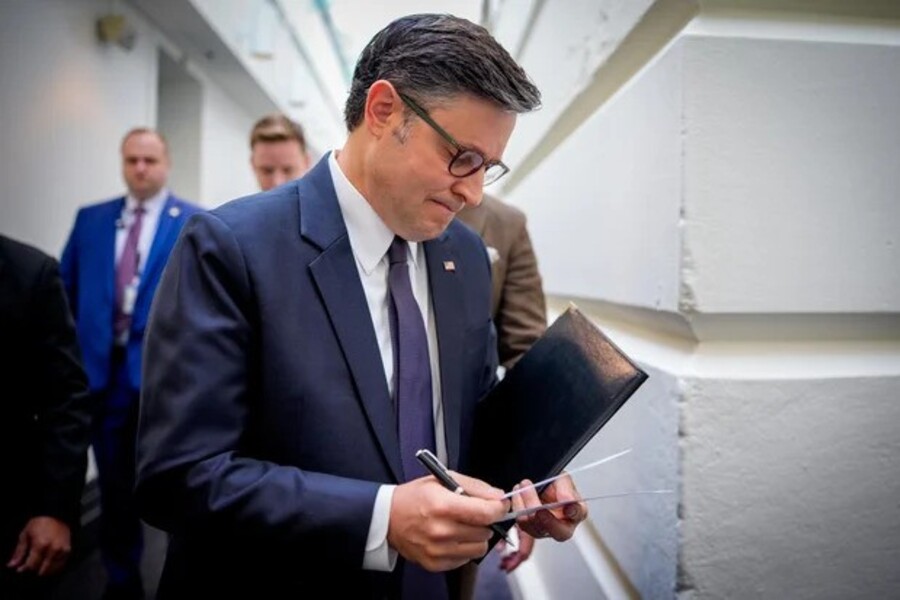House Republican leaders are working to calm growing concerns within their conference as delays and internal divisions threaten to derail President Donald Trump’s signature budget package, referred to by some as the “big, beautiful bill.” While top GOP figures insist the legislation remains on course, the timeline they initially set appears increasingly unrealistic, with crucial components still unfinished and Memorial Day fast approaching.
The budget reconciliation bill, central to advancing Trump’s priorities on border security, defense, energy policy, and taxes, began committee review last week. However, several key panels—such as Energy and Commerce, Ways and Means, and Agriculture—have yet to complete or even schedule markups. Speaker Mike Johnson acknowledged Tuesday that leadership made the call to “push pause for a week” to align internal factions and ensure the bill is carefully crafted.
“We can pass that by Memorial Day. That was our original timeframe,” Johnson said, though he admitted the deadline may now slip into June. Committee leaders face a May 9 target under the budget resolution passed in April, but with several elements still under negotiation, Johnson is now eyeing completion by the end of next week.
The Energy and Commerce Committee is responsible for identifying $880 billion in spending reductions, particularly focused on Medicaid. That assignment has drawn intense scrutiny, with moderates wary of cuts to a popular entitlement and conservatives demanding deeper reductions. GOP leadership has tried to frame the proposed changes as targeting “waste, fraud, and abuse,” but policy differences persist.
At the same time, the Ways and Means Committee is mired in disagreement over the state and local tax deduction, or SALT. Republicans from high-tax blue states want to raise the current cap, while others oppose any expansion of what they view as a tax break for wealthier constituents. Speaker Johnson said leadership is working toward a compromise, describing the goal as reaching an “equilibrium point” that may not satisfy all, but would be enough to unite the conference.
Johnson emphasized that the GOP approach is one of “consensus building,” stating he does not make promises he cannot keep. “This is one big, beautiful bill,” he said, reiterating the party’s vision even amid legislative friction.
House Majority Leader Steve Scalise offered cautious optimism, saying the party is “on track” and still aims to have the bill on the president’s desk by June. However, some Republican members expressed doubts. Rep. Tim Burchett called the Memorial Day deadline “wishful thinking,” and Rep. Ralph Norman noted that while conversations were productive, action remains critical.
Complicating the situation further, House Democrats launched a procedural maneuver Tuesday—a discharge petition—to force a vote on separate legislation that would shield Medicaid and the Supplemental Nutrition Assistance Program (SNAP) from potential cuts. With 213 Democrats backing the move, they need just four Republicans to cross party lines to bring the measure to the floor. The bill would prohibit Congress from reducing benefits or enrollment in either program.
Minority Leader Hakeem Jeffries framed the effort as a test of Republican resolve to protect vulnerable Americans, saying, “All we need are four House Republicans to do the right thing.”
As Republicans attempt to finalize a massive legislative package that balances competing ideological priorities, their ability to coalesce will determine whether Trump’s agenda moves forward—or stalls under the weight of intra-party disputes. The coming weeks are expected to be decisive in shaping the scope and viability of what could be the defining legislation of Trump’s renewed presidency.

